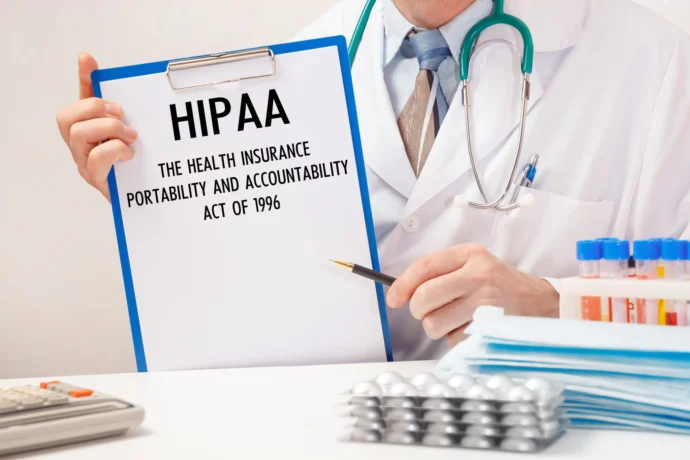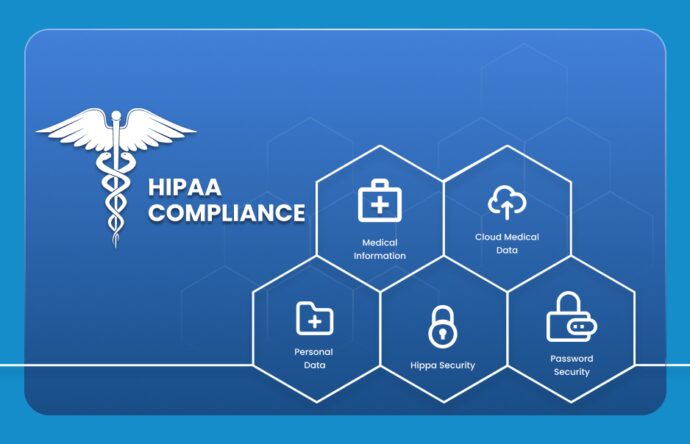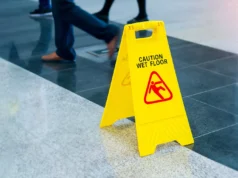It is important to know that illegally texting your patient is a violation of HIPAA compliance. When it comes to texting in the health sector HIPAA compliance is very essential.
Every healthcare organization must endeavor to send HIPAA compliant sms at all times, as this helps to maintain the privacy of their patients. The use of HIPAA texting platforms or apps is very essential and would be a great asset to any healthcare organization.
Over a period of time, healthcare organizations have devised a way of communicating with their patients and informing them about important upgrades, and picking up prescriptions for their treatments, paperwork services, and therapy. The day-to-day operation of healthcare organizations and patients alike is highly dependent upon these communication and operations put in place to foster that smooth progress and process.
As the days go by and technology become more advanced, healthcare experts have devised the possibilities of texting patients, sending SMS as notifications, and a healthy replacement of calls and fax. These text messages can be forwarded automatically and in auto mode. The advantage of SMS services is that patients are likely busy at certain hours of the day for a call and many younger ones prefer and respond faster to text messages than a call.
Furthermore, text messages provide a means of record keeping for patients who are prone to forgetfulness or simply need a reminder to juggle their memory in case they forget an instruction given to them by the doctor or pharmacists concerning their daily practice, prescription, or therapy days/consultations. The permanent feature of texts provides convenience and easy data recovery instead of note-taking which is time consuming and tasking to do.
Unfortunately, despite the advantages of these text services, the convenience and permanent feature raises a concern in the heart of many healthcare experts and patients. Does text messaging protect the concerns, privacy, and confidential information of the client?
Given the introduction of HIPAA compliance, the question we consider today is are you legally texting your patients? What is the necessary compliance one needs to adhere to to ensure the legality of the text messages that they send within the healthcare provisions?
Read on for more details on the legal texting of patients within the healthcare system and organizations around the globe.
What Is HIPAA Compliance?

HIPAA compliance guides all patients who are in contact with any healthcare organization. This is the Health Insurance Portability and Accountability Act (HIPAA) which is a set of rules and guidelines that governs all healthcare organizations. HIPAA compliance helps ensure that the information sent to a patient is secure.
Healthcare providers must follow HIPAA compliance rules and regulations to ensure the safety of their patients. There are also some sets of ways to properly implement these rules. Following the rules set by HIPAA means that you must have safety measures in place, rules, and guards to protect the interest, confidentiality, and privacy of the client during text messaging. Whether it is a consultation, therapy, counseling, or pick-up details for their prescriptions.
Following these rules set by the HIPAA assures that the patient is in safe hands and happy to cooperate with what is required of them without being edgy about their data in public. These rules apply differently across several platforms but HIPAA-compliant texting and SMS are where we’ll channel our energy and devote interest.
Difference between HIPAA Compliant Texting Platform And Other Messaging Platforms

Knowing the difference between HIPAA-compliant texting platforms and other messaging platforms helps you know if you are illegally texting your patients or not. HIPAA-compliant texting gives direct communication between the healthcare provider and the patient. This helps to create efficient communication between them. Unlike regular texting apps, there is no need to create a profile.
Healthcare organizations that must send HIPAA-compliant text messages to their clients are expected to receive the full approval of the patient before they commence, even in writing. The prompt messages that come with most standard HIPAA-compliant platforms allow the patient to approve and consent to sharing their data and receiving the same via the platform.
For example, the name of the organization will read that it complies with HIPAA and needs to pass information and data to the patient through the platform. The patient must respond in the affirmative or negatively for the business to continue.
The healthcare professional sends the patient a particular way to sign up which is not publicly available. This can be very private but it also lacks a bit of the social media freedom given by other messaging apps. The patient only needs to respond when they get a notification and are allowed to respond. Other messaging platforms can be accessed at all times without much hassle. Information can be exchanged between one person and another without privacy.
Common ways HIPAA Compliance Is Violated

Oftentimes HIPAA compliance is violated intentionally or by simple human mistakes. When this happens it simply means there is a simple breach of incompetence in the healthcare organization involved. Here are some of how HIPAA compliance can be violated.
Texting from a personal phone: This is one of the most simple ways HIPAA compliance is broken. To avoid this simple mistake and ensure HIPAA compliance all texting should never be from a mobile device. A healthcare organization or healthcare professional must endeavor to use a HIPAA-compliant platform. Patients are the ones allowed to use any mobile device to intercept messages. Personal phones are dedicated to the personal use of the healthcare expert and not for texting patients. Since personal devices do not make use of the approved texting platform that is HIPAA compliant, it violates the legal right of the patients and also puts them at risk of data leaking
Disclosure of information by employees: patient information is the one thing that must be protected at all times. Employees are not allowed to share vital information about a patient with any unauthorized persons. Employees should be very careful when sharing information in the organization.
This controls the leaking of vital patient information. When information is well controlled in the organization it helps to control information within the organization. This helps to ensure that information is well-secured.
Unauthorized info assessment by employees: Information within any healthcare organization should be well-restricted. This makes vital information accessible to a certain group of people. And this also helps to maintain patients’ privacy.
When unauthorized individuals get access to vital information regarding any patient many issues might arise. It can be seen as a sign of incompetence when unauthorized individuals casually get access to an organization’s vital data.
Is There a Need To Be HIPAA Compliant While Texting
Normal texting does require HIPAA compliance. However, it is a different case when it comes to texting in healthcare, all messages sent to a patient must be HIPAA compliant. Despite that, there are still a few cases when HIPAA compliance is not needed.
Texting that bears no private information about a patient does not require HIPAA compliance. On the other hand, texts that bear information like procedures test results, and date of appointment need to be protected.
How To Use HIPAA-Compliant Texting

Texting a patient is different from casual texting. Patient privacy and safety are at risk when HIPAA-compliant texting is not applied. This is more of the reason why healthcare providers must know how to HIPAA-compliant texting at all times when texting their patients. There is vital information that must be protected at all times when texting a patient.
- Medical records number
- FAX Numbers
- Social Security Numbers
- Email Address
- Name
- Account number
- Date
- Geographic data
- Web URLs
- Certificate/license number
- Biometric Identifiers
- Full face photo
- Health plan beneficiary Number
- Vehicle identifiers and serial numbers including license plates
This is information that might lead to some issues when compromised. When you are illegally texting your patient this is a straight violation of HIPAA-compliant texting. Healthcare providers must endeavor to abide by the rules to avoid these violations.
When texting a patient the healthcare provider must follow some security steps to ensure security and privacy on both sides. HIPAA rules and regulations were put in place for situations like this. Violation of any of the rules is likely to attract some penalty.
These penalties might include loss of license, fines, and jail time. Healthcare organizations must avoid this by following the rules and making it their priority. To ensure that you are legally texting your patient these things must apply.
Written Consent: Written consent is very much needed before texting a patient. Texting a patient without their consent also results in a violation of HIPAA-compliant texting. The patient can also withdraw their consent if they wish to as well.
Enforce your policy: Some rules should be set to make sure that staffs within a healthcare organization follow all HIPAA rules when texting a patient. And there should be a penalty as well. This will help to make sure the staff abides by the rules at all times.















